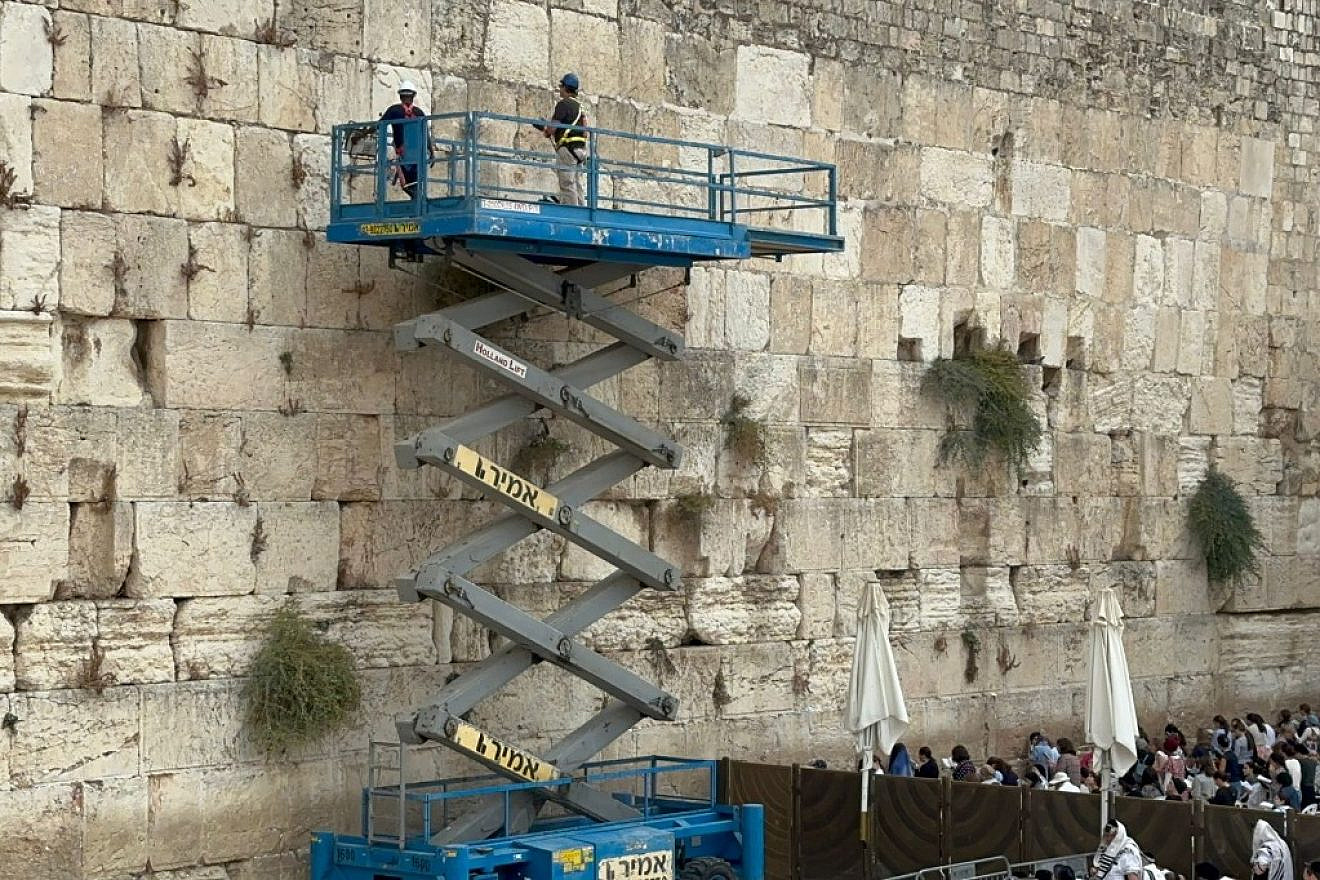As Jews prepare for the High Holidays, engineers on Tuesday began getting the holy site ready for the thousands of visitors expected there.
The engineers, working for the Western Wall Heritage Foundation, which administers the site’s daily affairs, examined the structural integrity of the Wall, removing loose stones and seasonal plants.
The inspection is performed twice a year, ahead of Rosh Hashanah and Passover, for the safety of visitors and to maintain the wall’s structural integrity. The work is done under the supervision of the Rabbi of the Western Wall and the Holy Places Rabbi Shmuel Rabinowitz and in accordance with religious law.
In July 2018, a boulder weighing 100 kilograms (220 pounds) became dislodged from the wall and fell, just missing a 79-year-old woman praying there.
According to the foundation, more than half a million people visited the Western Wall during Passover in April.
Rosh Hashanah, which kicks off the High Holidays, begins this year at sunset on Sept. 15.
During the inspections, workers also clean the Wall and remove the thousands of notes written to God that visitors place between the stones.
The practice stems from Jewish teachings that God’s presence never left the Western Wall and that prayers ascend to heaven through the adjoining Temple Mount.
People unable to visit can write notes on the foundation’s website that are placed in the Wall by staff.
Notes removed by workers are buried.
The Western Wall, once known as the Wailing Wall, is a remnant of a retaining wall encircling the Temple Mount built by Herod the Great and is the holiest site where Jews can freely pray. The Temple Mount, where the First and Second Temples stood, is the holiest site in Judaism.
For centuries, Jews did not visit the Temple Mount because foreign occupiers would not let them and because of a rabbinic consensus that laws of ritual purity preclude it.
But since the unification of Jerusalem during the 1967 Six-Day War, a growing number of rabbis have argued that ritual purity laws don’t apply to all sections of the Temple Mount and encourage visits to permitted areas to maintain Jewish connections to the Mount.
More than 2,000 Jews visited the Temple Mount during the initial days of Passover this year before security officials restricted access to the holy site.

























